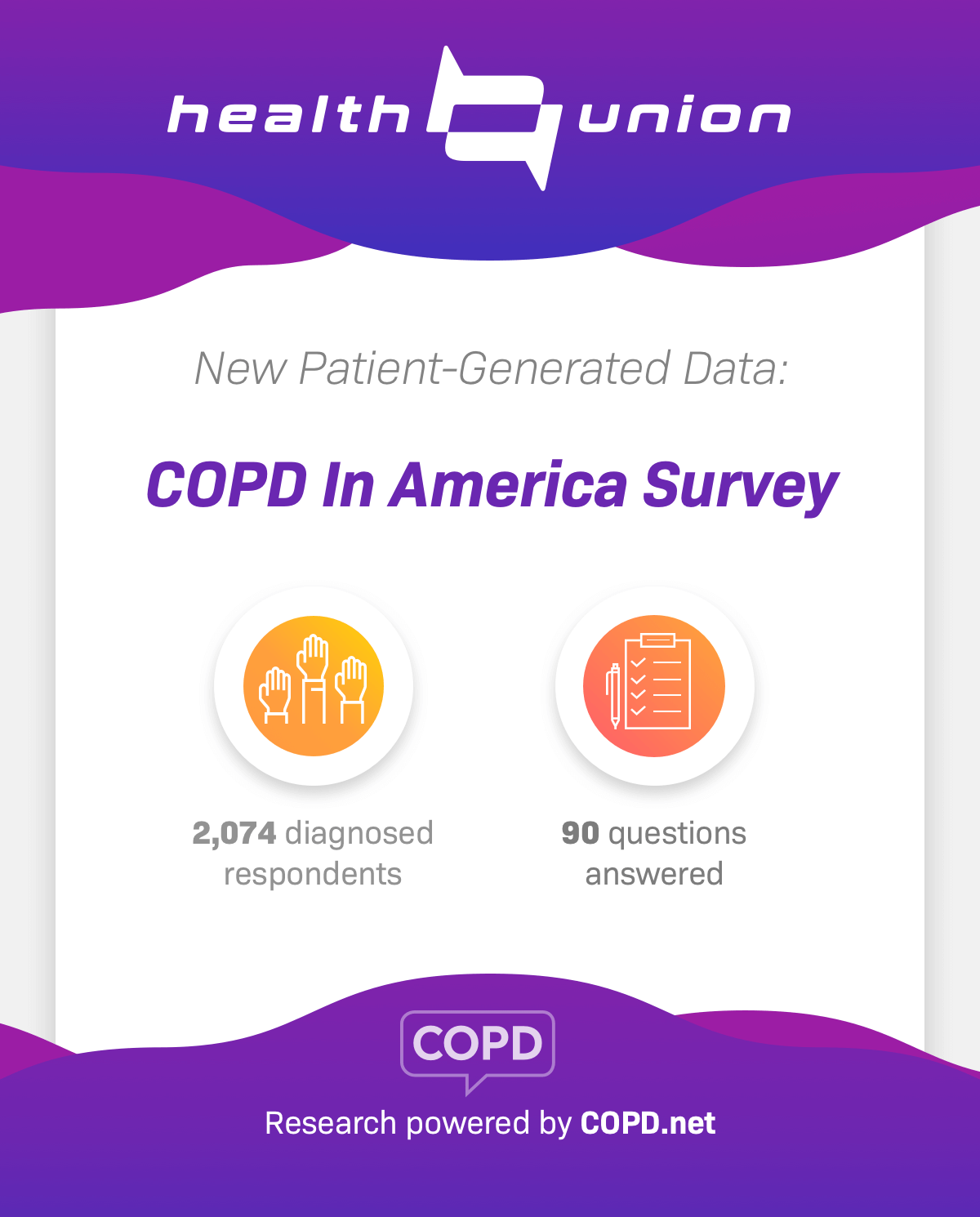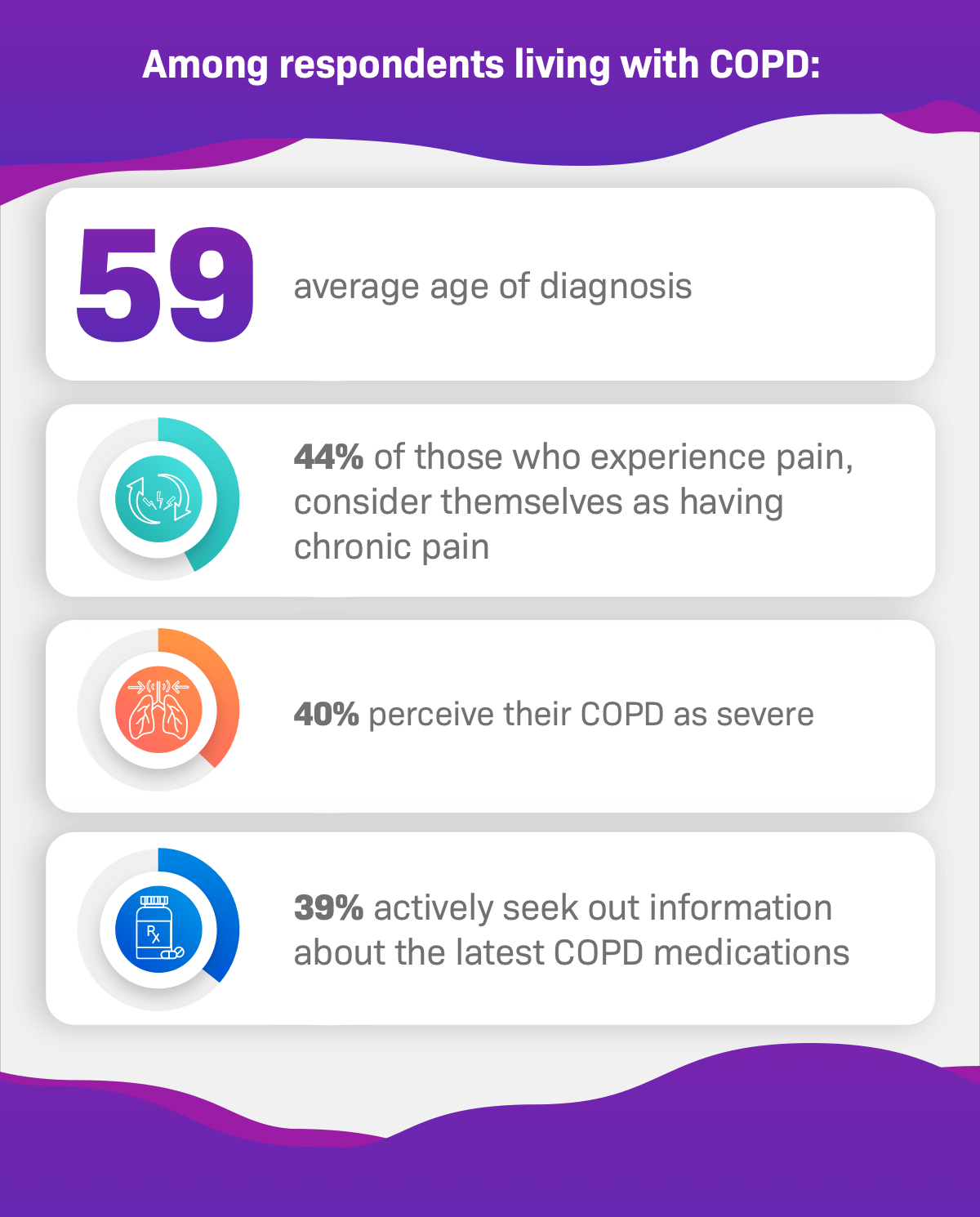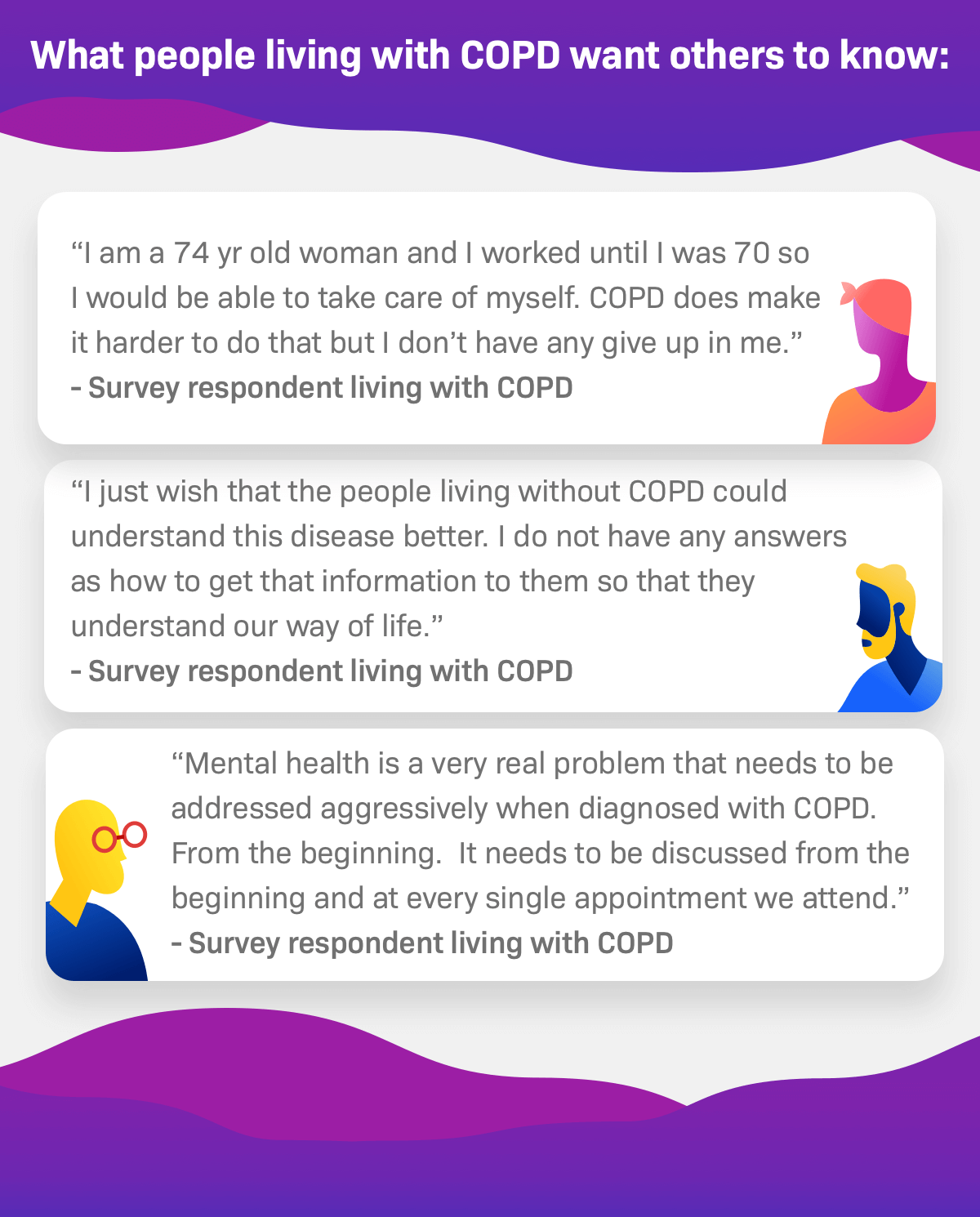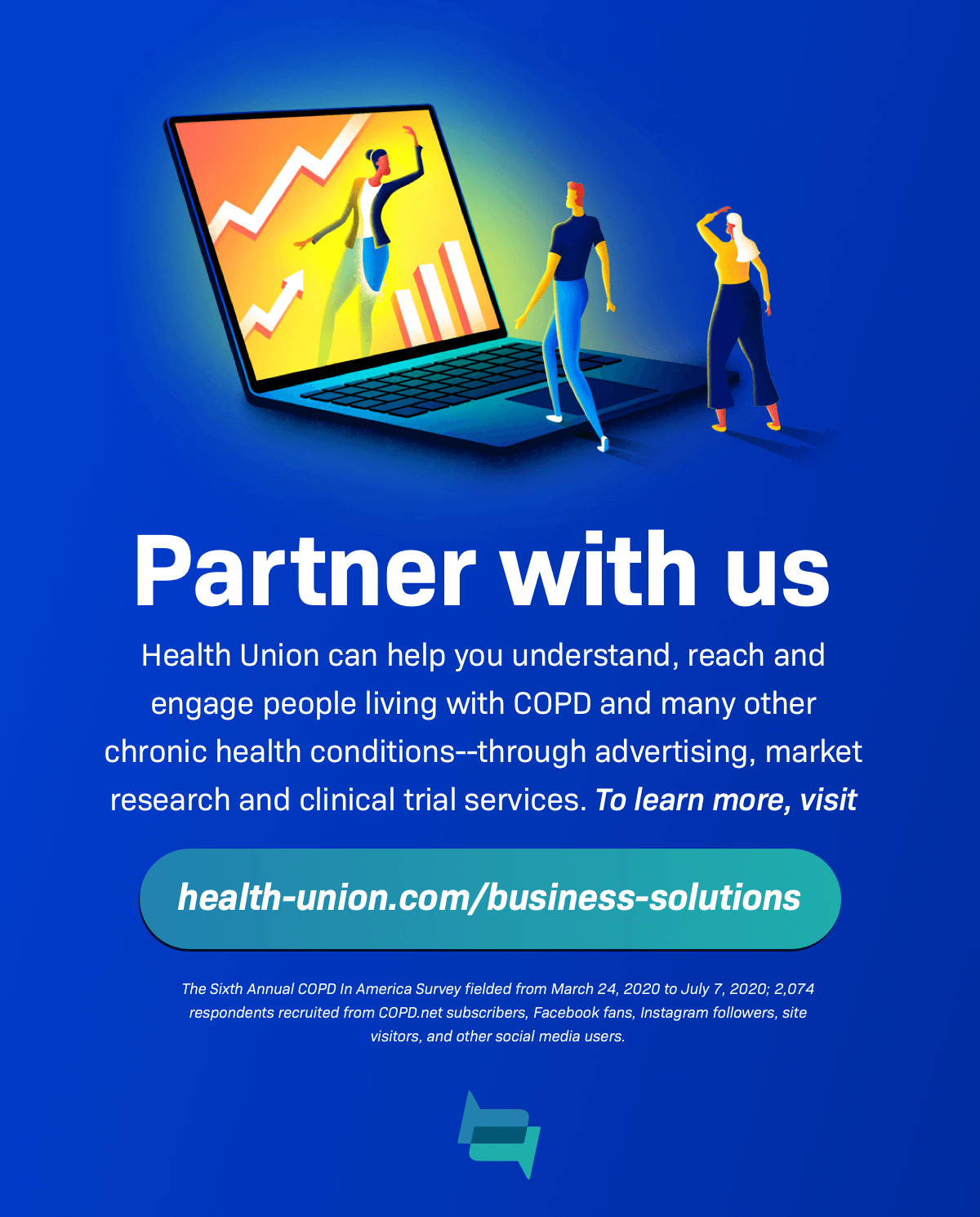COPD In America
New Health Union survey data helps the healthcare industry better understand and reach people living with COPD
For the sixth year in a row, Health Union has gathered patient-reported data from thousands of real people impacted by COPD. The sixth annual COPD In America survey, a syndicated research study from Health Union, quantifies the true impact of this condition among patients – going beyond basic demographics and symptoms to establish a deep understanding of the holistic patient journey for those affected and to track trends over time.
The new data from the sixth annual COPD In America survey reveals deep insights of a population of 2,074 diagnosed respondents, in which the average age of diagnosis was 59, 40% perceive their COPD as severe, 39% actively seek out information about the latest COPD medications, and 44% of those who experience pain, consider themselves as having chronic pain.
Life with COPD can be complicated and multi-faceted–and survey respondents spoke up about what they want others to know:
“I am a 74 yr old woman and I worked until I was 70 so I would be able to take care of myself. COPD does make it harder to do that but I don’t have any give up in me.” – Survey respondent living with COPD
“I just wish that the people living without COPD could understand this disease better. I do not have any answers as how to get that information to them so that they understand our way of life.” – Survey respondent living with COPD
“Mental health is a very real problem that needs to be addressed aggressively when diagnosed with COPD. From the beginning. It needs to be discussed from the beginning and at every single appointment we attend.” – Survey respondent living with COPD
This access to a broad base of knowledge, facts and data gleaned from Health Union’s open online health communities like COPD.net, and syndicated research allows the healthcare industry to harness the power of Health Union’s continuous immersion in the patient experience to deliver smarter insights and implications–so you can spend your time developing the strategies that will make a difference.




